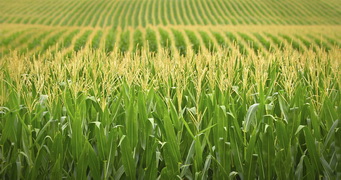
Global Ban on GM Crops to Raise Food Prices, Add A Billion Tons of CO2 to Atmosphere
November 16, 2016| |
 A study conducted by researchers from Purdue University reveals that a global ban on genetically modified (GM) crops would raise food prices and add the equivalent of nearly a billion tons of carbon dioxide to the atmosphere.
A study conducted by researchers from Purdue University reveals that a global ban on genetically modified (GM) crops would raise food prices and add the equivalent of nearly a billion tons of carbon dioxide to the atmosphere.
The researchers used a model to assess the economic and environmental value of GM crops, and found that replacing GM corn, soybeans, and cotton with conventionally bred varieties worldwide would cause a 0.27 to 2.2 percent increase in food costs, depending on the region, with poorer countries hit hardest. The study also reports that a ban on GM crops would also trigger the conversion of pastures and forests to cropland to compensate for lower productivity of conventional crops, which would release substantial amounts of stored carbon to the atmosphere.
If countries planting GM crops matched the rate of GM crop plantings in the United States, global greenhouse gas emissions would fall by an equivalent 0.2 billion tons of carbon dioxide, and would allow 0.8 million hectares of cropland (about 2 million acres) to return to forests and pastures.
Purdue University professor of agricultural economics Dr. Wallace E. Tyner said, "Some of the same groups that want to reduce greenhouse gas emissions also want to ban GMOs. But you can't have it both ways. Planting GMO crops is an effective way for agriculture to lower its carbon footprint."
For more details, read the news release at Purdue University website.
| |
Biotech Updates is a weekly newsletter of ISAAA, a not-for-profit organization. It is distributed for free to over 22,000 subscribers worldwide to inform them about the key developments in biosciences, especially in biotechnology. Your support will help us in our mission to feed the world with knowledge. You can help by donating as little as $10.
-
See more articles:
-
News from Around the World
- Global Ban on GM Crops to Raise Food Prices, Add A Billion Tons of CO2 to Atmosphere
- Half of South Africans Believe GM Crops are Good for the Economy
- Scientists Identify Gene to Fight Wheat Scab
- UF/IFAS Study Says People Who Know About GM Foods Agree with Science that They are Safe
- Indian Farmers Benefit from GM Crops
- Survey Shows Agriculture Extension Officers in Pakistan Need More Training on Biotech
-
Research Highlights
- Scientists Develop Marker-free GM Hexaploid Wheat
- Wheat Disease Resistance Gene Lr34 Confers Fungal Disease Resistance in Maize
-
Beyond Crop Biotech
- Scientists Identify Key Catalyst for Antibiotic Resistance
- Researchers Show Parasites' Diet Can Affect DNA
-
Announcements
- 2016 EU Agricultural Outlook Conference
- Forum of Scientific Society Leaders on Genetically Engineered Crops: Experiences and Prospects
-
Resources
- New ISAAA Video Presents Impact of GM Crops on Adopting and Importing Countries
-
Plant
- Researchers Study the Use of CRISPR/Cas9 to Generate Virus Resistance
- CRISPR/Cas9 Genome Editing of Rubber-Producing Dandelion
-
Read the latest: - Biotech Updates (December 17, 2025)
- Gene Editing Supplement (December 17, 2025)
- Gene Drive Supplement (February 22, 2023)
-
Subscribe to BU: - Share
- Tweet
